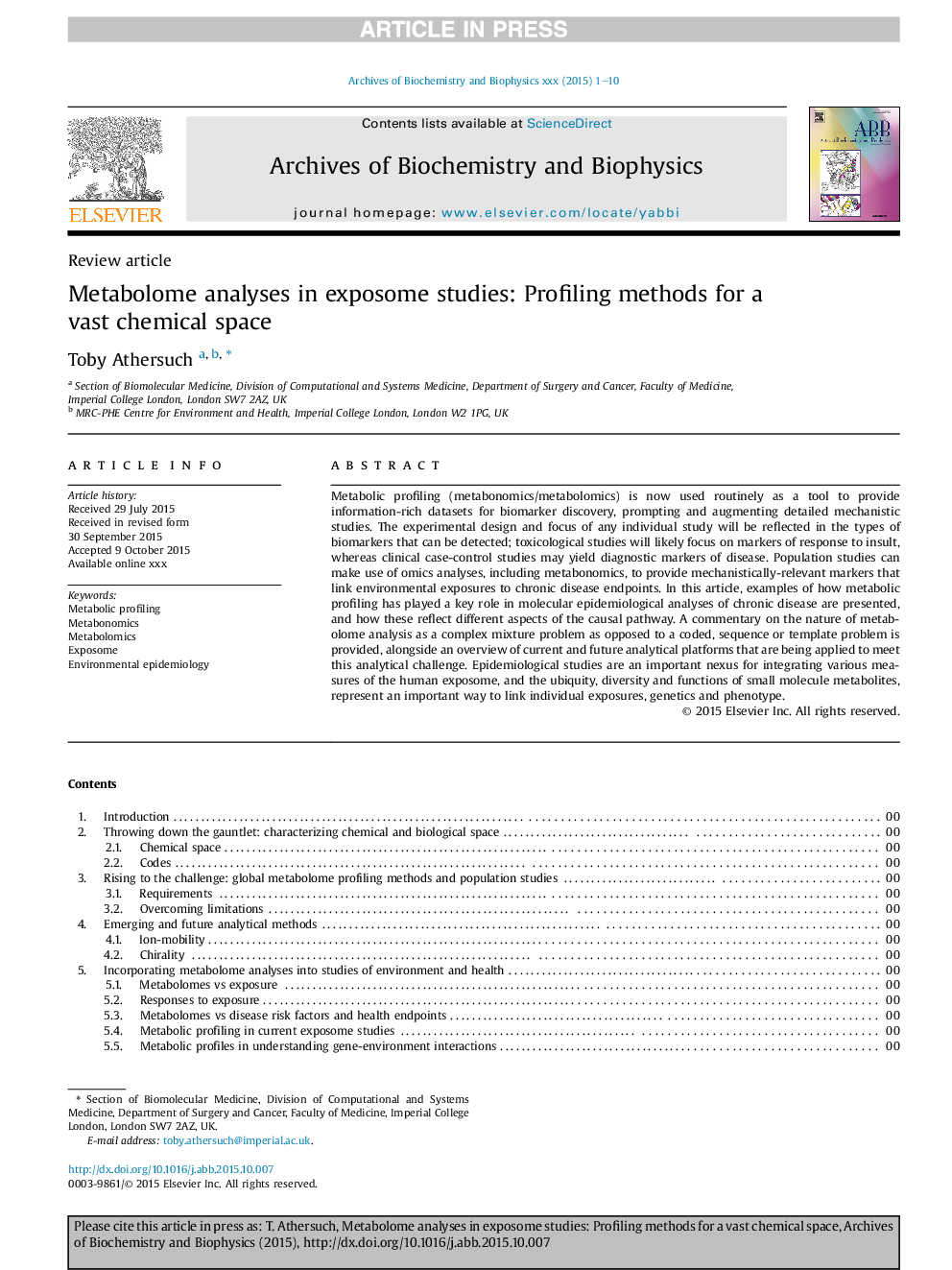| Article ID | Journal | Published Year | Pages | File Type |
|---|---|---|---|---|
| 8289535 | Archives of Biochemistry and Biophysics | 2016 | 10 Pages |
Abstract
Metabolic profiling (metabonomics/metabolomics) is now used routinely as a tool to provide information-rich datasets for biomarker discovery, prompting and augmenting detailed mechanistic studies. The experimental design and focus of any individual study will be reflected in the types of biomarkers that can be detected; toxicological studies will likely focus on markers of response to insult, whereas clinical case-control studies may yield diagnostic markers of disease. Population studies can make use of omics analyses, including metabonomics, to provide mechanistically-relevant markers that link environmental exposures to chronic disease endpoints. In this article, examples of how metabolic profiling has played a key role in molecular epidemiological analyses of chronic disease are presented, and how these reflect different aspects of the causal pathway. A commentary on the nature of metabolome analysis as a complex mixture problem as opposed to a coded, sequence or template problem is provided, alongside an overview of current and future analytical platforms that are being applied to meet this analytical challenge. Epidemiological studies are an important nexus for integrating various measures of the human exposome, and the ubiquity, diversity and functions of small molecule metabolites, represent an important way to link individual exposures, genetics and phenotype.
Related Topics
Life Sciences
Biochemistry, Genetics and Molecular Biology
Biochemistry
Authors
Toby Athersuch,
